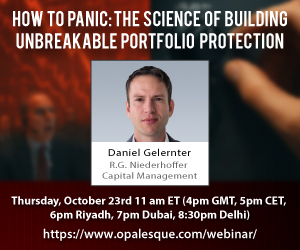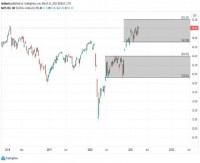|
Opinion Column Ethics and the Shariah as a root for corporate governance Shariah compliant businesses are relatively new to the industry and there is very little documented data to help assess whether they have better corporate governance principles and practices in place. However the Shariah does provide a good source for a principles-based approach which has been argued to be more effective in achieving good corporate governance than a rules based approach. In theory, a firm engaged in Shariah compliant business should have a set of principles derived from Islam governing its approach to business and relationships with its stakeholders. This set of principles should help the activities of a firm to be good or wholesome. While the principles derived from the Shariah should help achieve good corporate governance, one must remember that the principles that are the foundation for good corporate governance are the universal principles of good ethics and responsibility. These universal principles do not exclude those businesses that are not Shariah compliant, but, if implemented correctly, would be a natural component of the guidelines of any Shariah compliant business. While many religions have general guidelines on ethics in trade, transacting, and investment, not only are the guidelines set forth in Islam very detailed, but the industry also binds itself to following them. Therefore, it is one of the few industries that follows the set of ethical principles set up by the industry in addition to the guidelines set forth by the Shariah. The concepts of unity and stewardship prevail in all Islamic thought including that to do with business and ethics. Unity talks to the sense of being one with, and of, the world and in its simplest form conveys the importance of awareness of others. Stewardship is a trusteeship granted to a Muslim by God and invokes in us all a sense of responsibility toward resources. It is the duty of a Muslim that the resources provided by God are to be used wisely. Implicit in this use is that these resources will be used to ensure the basic needs of all are covered before those resources are allocated to the wants and the luxuries in life. Like any other business, Islamic finance firms have a board of advisors and in this particular case they are a group of specialized scholars comprising the Shariah board. They are a unique stakeholder in the company and the governance of a board consisting of Shariah scholars would not be the same as the governance of an advisory board for any other type of institution. Since these are not your common stakeholders such as employees, partners, or customers, these groups require a different set of guidelines and principles. In the case of Shariah boards, the IFSB (Islamic Financial Services Board) has released a set of guidelines for the governance of Shariah boards. The principal argument is that corporate governance is universal and that it finds its roots in ethics. Usama DeLorenzo is a Project Leader with the Securities Commission Malaysia. The opinions expressed herein are those of Usama DeLorenzo, and are not reflective of the views or policies of the Securities Commission Malaysia. Why the merger of Innovation and Social Responsibility needs to be the niche for Islamic Finance It is a well known, but rarely admitted fact amongst Islamic bankers and experts that Islamic Finance is not really innovative. Innovation is defined by most dictionaries as something new, a new method or practice or the act or process of inventing or introducing something new. In economic terms it is defined as something that increases value, customer value or producer value. What innovation there is in Islamic Finance was developed 1400 years back and that was the core fundamentals of Islamic commercial law. Hence, the 'innovative' value we perceive in Islamic finance exists only as a result of the fundamental governance and compliance constraints imposed on individuals and institutions, including rules prohibiting usury, gambling and ambiguity. These rules articulate very important sub-rules which form the basis of a solid contractual governance framework, including rules permitting only a first degree of separation from assets, not selling what you do not own and not trading in debt etc. Hence, this perception that there can be innovative Islamic finance products needs to be critically dissected. By far, the majority of 'innovations' in Islamic finance have been directed towards building what the rest of the world has already developed within the boundaries of Islamic law. Whether it be structured products, derivatives or sukuk, more efficient forms have existed at least 10 years before we came to the market with an innovative “copycat” version twisted around Islamic nominate contracts producing exactly the same outcome. As a result, Islamic Finance is not really an innovative field where value is added through creative inputs to make life better for individuals. The fact that every one nowadays markets themselves as innovative is really shying from the truth. Off the top of my head, I can name two Islamic financial Institutions that utilise derivations of the word innovation in their brand name, with many more who flagrantly abuse the terms at each and every opportunity. While I personally have no issues with presenting new Islamic products to the market that attempt to replicate conventional products, (which may be crucial to the growth of Islamic finance), I have an issue with individuals and organizations trying to pass them off as “innovative”. If we are to claim we are innovative, we must start reflecting on where we can really add value and this requires us to look at what our forefathers have handed down to us as a divine message and work around that to see how that message might add value to our lives. We certainly have not added value in terms of financial innovation, nor have we come with a new asset class. Going back to the original innovation that is Islamic Finance, our value was added as a result of our unique contractual governance and ethics requirements. The requirements to avoid usury, misrepresentations, ambiguity, zero-sum games all emanate from a broader set of principles that is conceived in Islam as a way of life to be practiced by all human beings. These include conceptions of vicegerency, commending good and forbidding wrongs and developing a spirit of brotherhood and trust. What this means for the innovation agenda in Islamic finance is a fundamental paradigm shift. Innovation in Islamic finance should be directed towards finding solutions to contemporary challenges while wearing the 'Islamic' hat and assessing how the Islamic perspective could add value. More so than everything else, it is the conception of social responsibility that is inherent in a Muslim's responsibility to his creator that can really add value to the financial system. Our research at Dar Al Istithmar and Oxford Islamic Finance is geared towards this agenda. While we acknowledge that our research may not derive immediate benefits, we are firmly of the opinion that the long term value for us and the Islamic industry can only be derived from an Islamic perspective of innovation, rather than innovation driven by the need to mimic mainstream products. Sayd Farook is Senior Consultant (Structuring and Legal) with Dar Al-Istithmar, based in London. The opinions expressed herein are those of Sayd, and are not reflective of the views or policies of Dar Al-Istithmar. |
Opalesque Islamic Finance Intelligence
Opinion Column: Sayd Farook, Dar Al-Istithmar and Usama DeLorenzo, Securities Commission Malaysia |
|





 RSS
RSS










